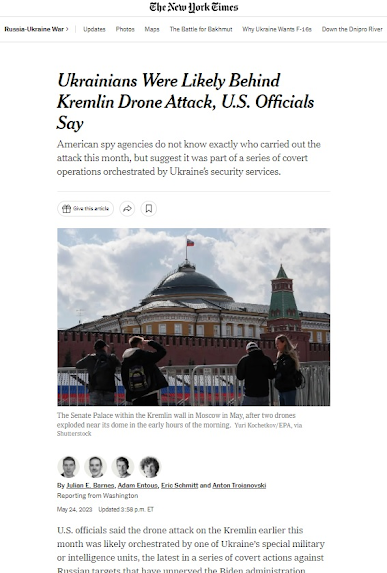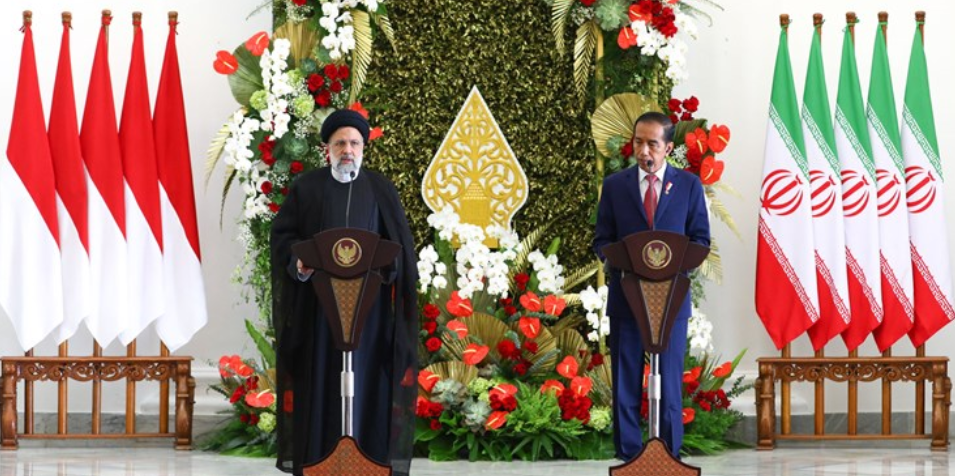
US officials to the New York Times: Ukraine most likely carried out the attack on the Kremlin carracterized by Moscow as an assassination attempt
That attack that was characterized by Moscow as an assassination attempt to kill Putin is was likely carried out by Ukraine occirding to US officials who spoke to New York Times.
On Wednesday, The New York Times quoted US officials as saying that the Ukrainians were "most likely" to have carried out the attack that took place with rallies on the Russian presidential building (the Kremlin) on May 3.
The officials said that US intelligence reached its initial assessment through intercepted communications, and that the attack was likely orchestrated by one of Ukraine's special military or intelligence units.
They also indicated that it was not clear if Ukrainian President Volodymyr Zelensky or his senior officials knew about the operation prior to its launch.
It is noteworthy that Russia had accused the United States of being behind the attack on the Kremlin, noting that it had several options for a measured and balanced response to the attack.
Russian officials also demanded the liquidation of Ukrainian President Volodymyr Zelensky in response to the attack.
Kiev has denied any involvement in the attack on the Kremlin, accusing Moscow of deliberately highlighting it in the media to justify any possible escalation of the conflict inside Ukraine.
Kremlin spokesman Dmitry Peskov said that efforts by Kiev and Washington to deny any responsibility for the attack on the Kremlin are completely absurd, and that decisions regarding such attacks are not taken in Ukraine, but in Washington, and Kiev implements what is asked of it.
The Russian Foreign Ministry also confirmed that there is no doubt that the Kiev regime was behind the attack, noting that the actions of the Kiev regime - which it described as "criminal" - confirm its unwillingness to settle the ongoing conflict through political and diplomatic means, threatening those responsible for the attacks with strict and inevitable punishment.




















































